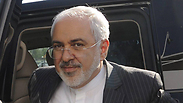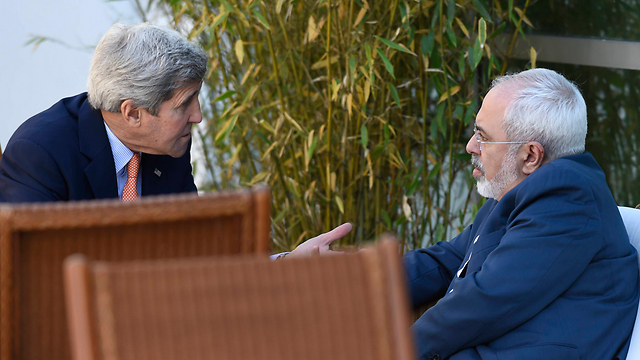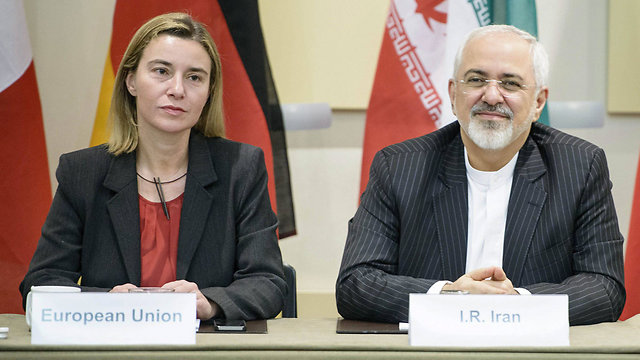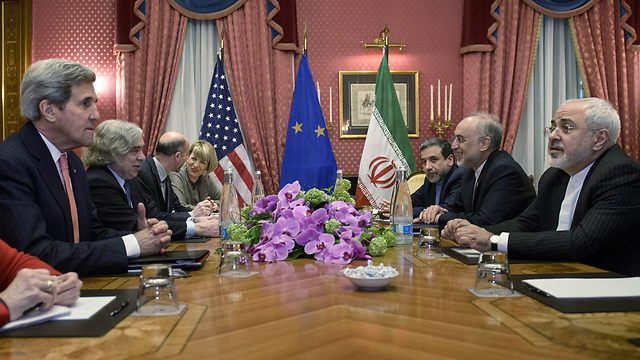
Iran talks to continue beyond June 30 deadline
Iranian Foreign Minister Zarif returns to Tehran to consult with leadership over disagreements in negotiations.
According to an Iranian source, Zarif returned to consult with the Islamic Republic’s leadership amid more than a few disagreements with Western countries.
"If the other side ... takes positive steps and does not make excessive demands, we will certainly reach a deal that benefits everyone," Zarif was quoted as saying by state news agency IRNA.

Meanwhile, some on the other side of the negotiations table are trying to convey optimism.
"If a few days more are needed we will take them," European Union foreign policy chief Frederica Mogherini told reporters on arrival in Vienna. "It is going to be tough... but not impossible. It is a matter of political will," she said before meeting the US, British, German and French foreign ministers.
British Foreign Secretary Philip Hammond sounded less encouraging.
"There a number of different areas where we still have major differences of interpretation in detailing what was agreed in (the) Lausanne (framework agreement)," Hammond told reporters on arrival in Vienna. He was referring to a framework deal agreed on April 2.
"There is going to have to be some give or take if we are to get this done in the next few days," he said, adding that there were red lines that could not be crossed. "No deal is better than a bad deal."
French Foreign Minister Laurent Fabius said there were three essential conditions for the deal: “A lasting limitation of Iran's research and development capacity, a rigorous inspection of sites, including military if needed, and the third condition is the automatic return of sanctions in case it violates its commitments."
Prime Minister Benjamin Netanyahu commented on the talks at a Sunday morning cabinet meeting.
“Two days before the expiration date for attaining an agreement between the powers and Iran, there is no demand for Iran to change its behavior and there is total indifference to all its violations, all its radical demands, and the concessions to Iran keep growing,” he said.
“We see before us a blatant retreat from the red lines the powers set for themselves only recently and publicly. There is no reason whatsoever to rush signing this bad agreement that gets worse every day.”
Both sides were sure to maintain a cautious pessimism from the beginning of the current round of talks. A Western official said the coming days would be particularly difficult and that the talks could extend beyond the deadline by a day or two.
The controversy has mainly revolved around the issue of sanctions. Last week Iran’s spiritual leader Ali Khamenei declared that a final nuclear agreement would require the West to immediately remove all sanctions as soon as the agreement comes into effect. But Washington and Europe insist on removing sanctions gradually, in proportion with Iran’s compliance.
As though these disputes were not problematic enough, US President Barack Obama also received a slap in the face last week in the form of an open letter signed by a group of former senior American advisors and experts, including five who worked for him during his first administration, warning that the agreement being formulated would "fall short of meeting the administration's own standard of a 'good' agreement".












